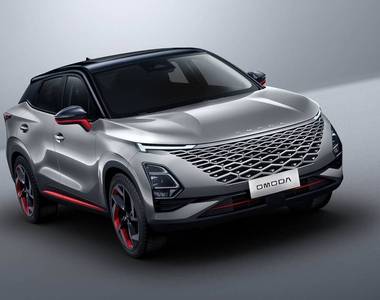VW has outlined plans that would see the German firm investing around £2.1 billion in Ford’s self-driving division – itself valued at over £6.5 billion.
Collaboration
This latest collaboration plan isn’t the first time the two motoring giants have decided to work hand-in-hand. In March 2019, the firms committed to building vans together – although they were keen to reaffirm that the brands would remain highly competitive in the car market.
Rather than concede any potential profits that independent self-driving ventures might generate, both Ford and VW have explained that the plan would offer “significant global scale” in an exciting new area of technology.
In actual fact, the pact between VW and Ford is one of many partnerships currently playing out in the industry. Less than a month before this announcement, BMW joined forces with Daimler that would see a similar commitment to the joint development of driverless vehicles, ride-hailing services, and pay-per-use vehicles. Before then, Honda made a £2.1 billion investment in General Motors’ driverless technology division – with a plan that would see a large fleet of unmanned taxis launched in the future.
VW and Ford
Although the investment might look like VW buying into Ford’s plans, the deal would actually see equal access to research and development for each company. Ford gains access to VW’s EV tech – and VW becomes an equal stakeholder in Ford’s self-driving ventures.
According to the VW chief executive Herbert Diess, the pact “improves the positions of both companies through greater capital efficiency, further growth, and improved competitiveness” – and both companies were keen to expand, saying they are continuing to look for other areas to collaborate on together.
A different angle
While it’s clear that VW and Ford have tech teams working flat out on new, shared technology – it’s perhaps also important to remember that this announcement comes off the back of what’s likely to be a very carefully thought-through strategy from both organisations’ marketing and PR teams.
Professor Peter Wells, director of the Centre for Automotive Research at Cardiff Business School, discussed a different underlying reason for motor industry collaborations with the BBC in 2019, explaining that the industry is “struggling to afford its own future”.
"The research and development to develop these new technologies also costs billions, so it makes sense to share the burden rather than duplicating," he explained.
Vehicle giants vs tech giants
As well as the sheer weight of resources required to develop the new technologies needed to put a fleet of self-driving EVs on the road – car manufacturers are facing a kind of competition that they’ve never encountered before – technology companies.
Both Google and Uber have invested enormous amounts of money in their own self-driving vehicle projects – and it’s likely that they’re working with far deeper pockets than most car firms.
Waymo – formerly the Google self-driving car project – has recently acquired the British AI firm Latent Logic; a startup that uses artificial intelligence to predict how human road users act as pedestrians, cyclists, and drivers. Although the firm was acquired for an unreported sum, Waymo itself has recently been valued at $175 billion – underlining the astronomical projections for the self-driving industry going forward.
Tech companies are – unsurprisingly – playing their cards close to their chests when it comes to talking about how developed their self-driving projects are. One thing’s for sure though; when a startup in the industry has such an extraordinary value attributed to it before it’s even put a commercial vehicle on the road – the coming months and years promise to deliver some exciting developments.
The question is, who will be the first successfully launch a self-driving product? A motor industry collaboration – or a tech company making its first steps into the industry?











